Best travel guitars: Top acoustic and electric guitars for musicians on the go
Out top picks for practicing your guitar on the move, wherever the road takes you
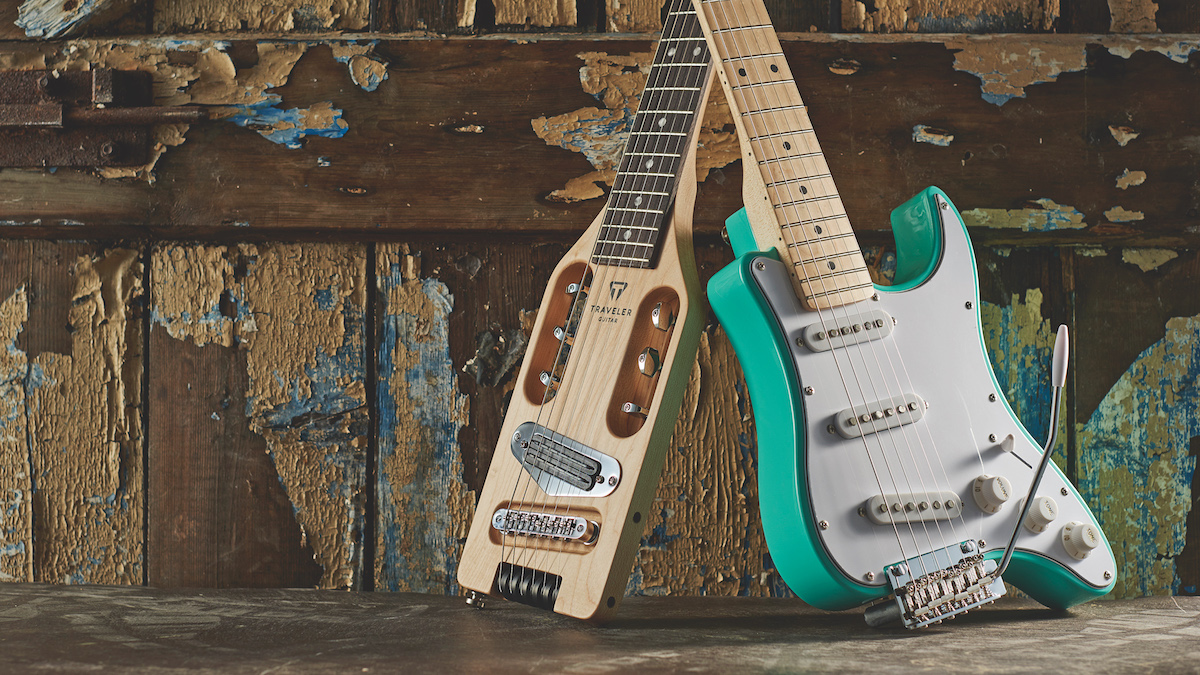
As guitar players, our passion and joy shouldn’t have to stop the second we leave the house or the practice room. Sometimes, when you’re on the go; whether that be travelling for work or just for fun, you want to be able to take your music with you. That’s where the best travel guitars come in.
Travel guitars are smaller, more compact instruments that are easier to take on the road. If you’re heading out on a road trip, and space in the car is tight, a travel guitar will fit in a much smaller gap than a full-size guitar. Some of them even pack down into a rucksack so you can take them on a plane as hand luggage.
It doesn’t matter whether you’re more into playing acoustic or electric, we’ve picked out the best travel guitars currently on offer to make sure that the music doesn’t have to stop when you hit the road.
Best travel guitars: Quick list
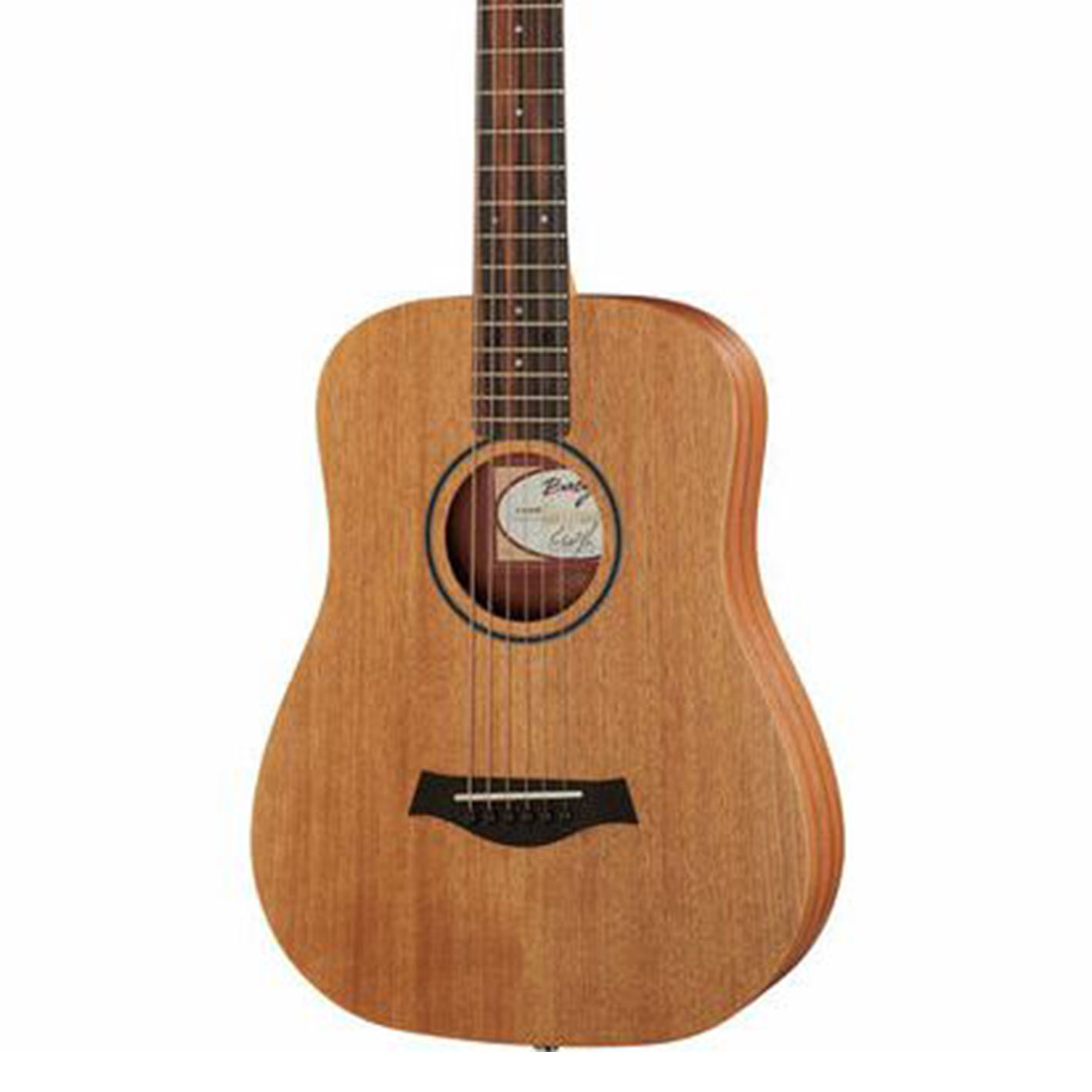
This ¾-sized dreadnought comes with all the quality and projection you’d expect from one of the acoustic world’s biggest names, just in a size that can be hauled around anywhere without breaking your back. Or, indeed, your wallet.
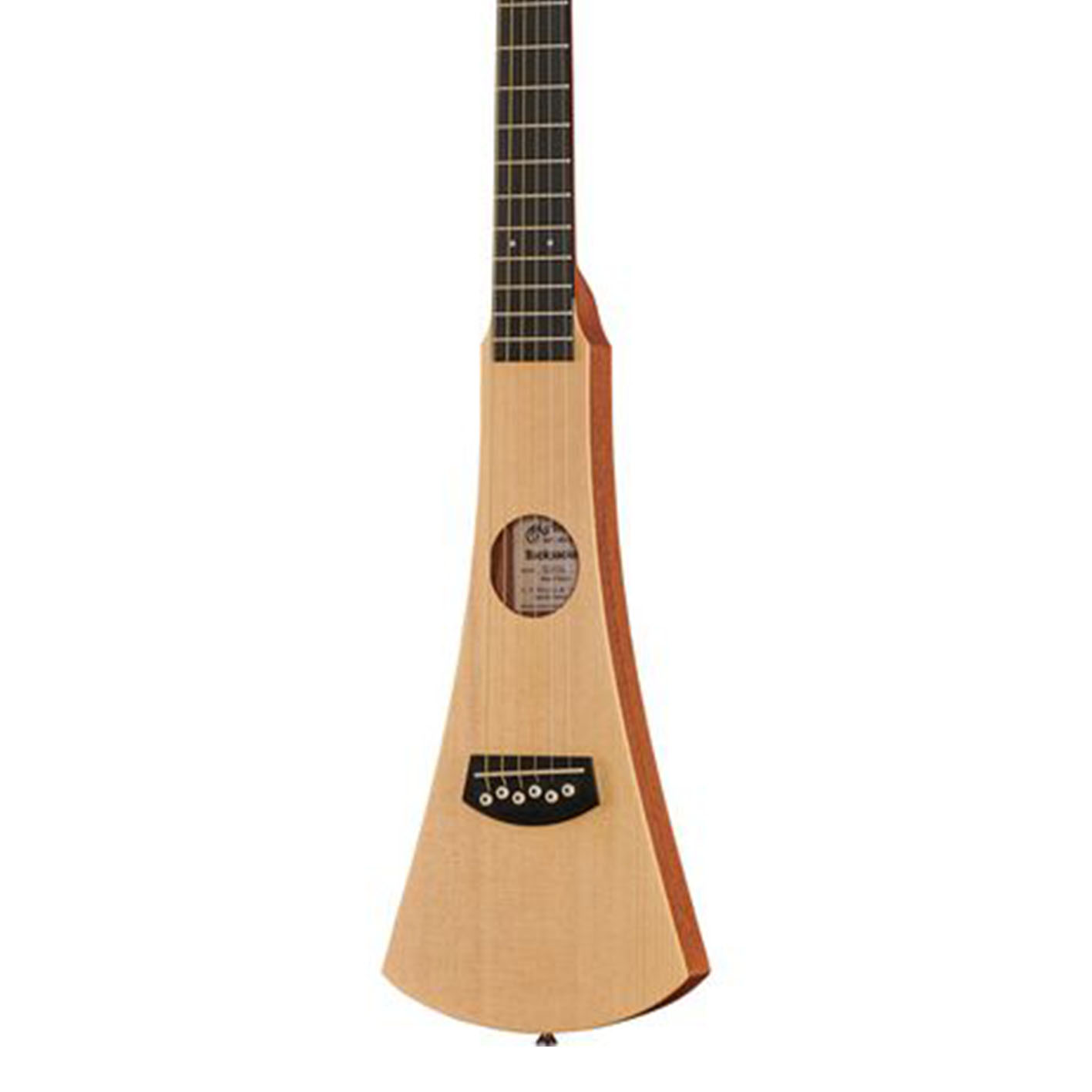
The Martin Backpacker has a unique body shape, that’s for sure, but coming from a name like Martin you can rest assured this guitar will perform brilliantly. What surprised us was the volume and projection this little guitar pumps out, thanks in part to the solid mahogany used in the body.
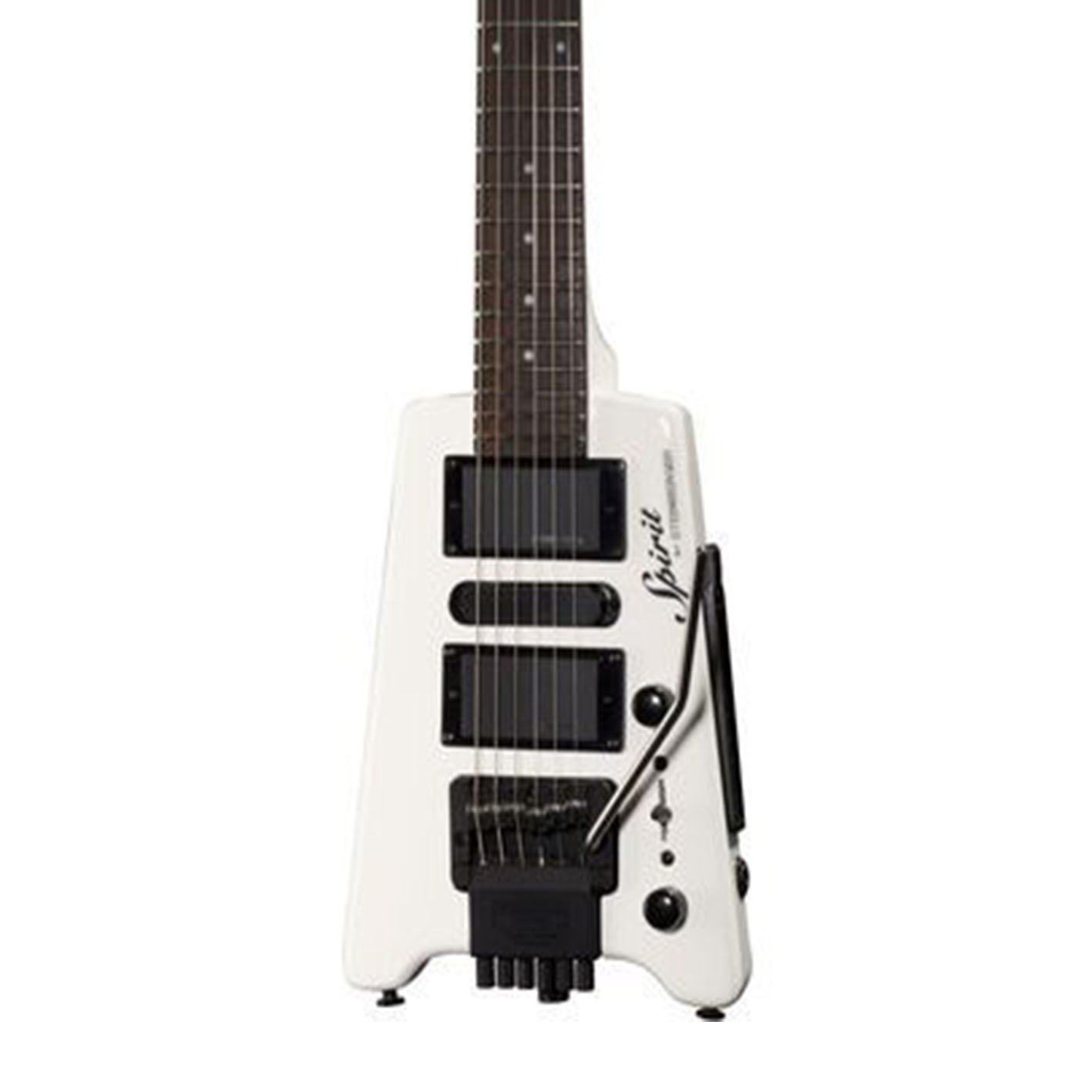
The Steinberger Spirit GT-Pro Deluxe definitely fits the travel guitar bill due to its distinctive size and shape. Despite the smaller body, the Spirit GT-Pro Deluxe features a scale length of 25.5”, making the actual playing area larger than that of a standard Les Paul.
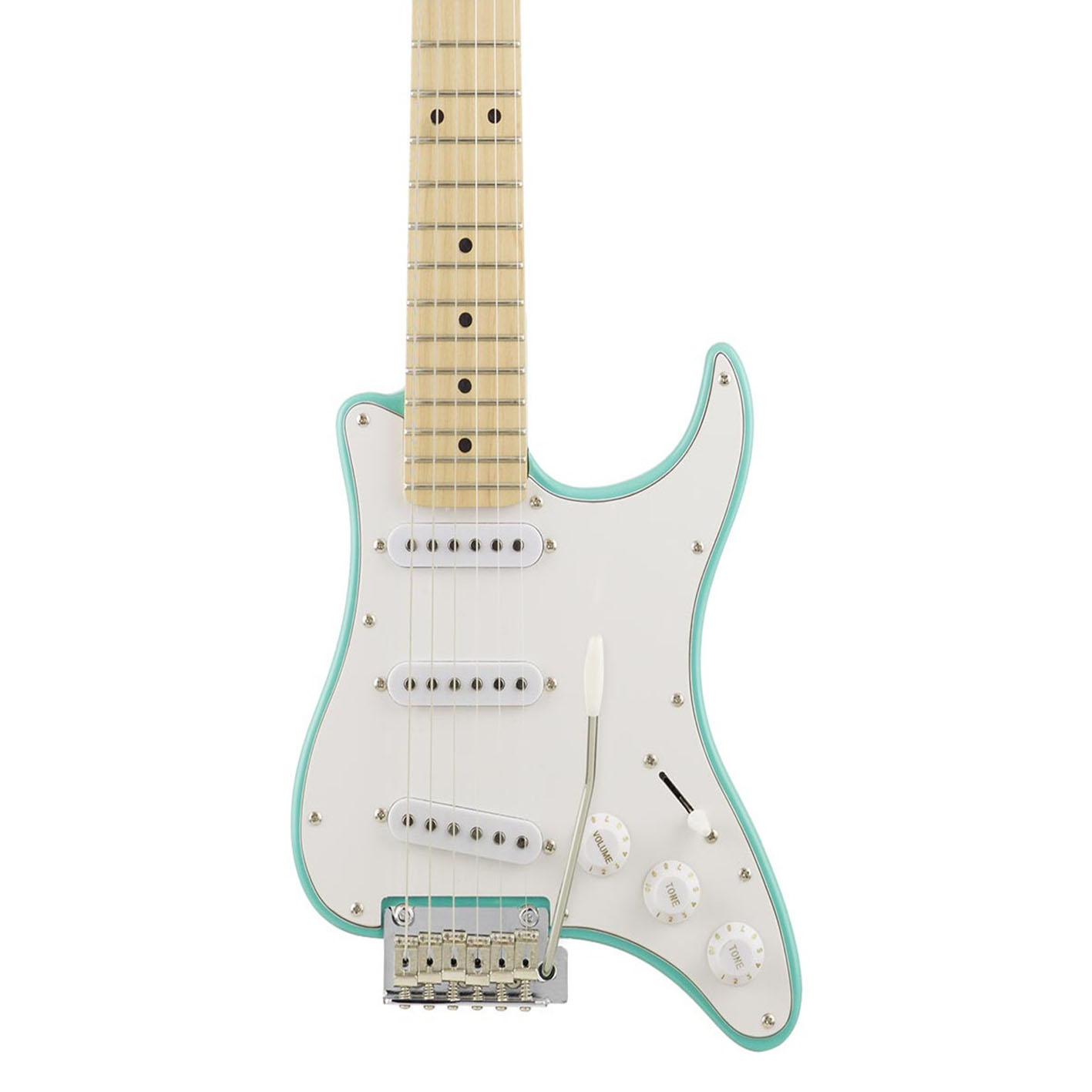
You can instantly see those famous Stratocaster outlines of the pickguard, the three single coil pickups and the control knobs. Yet the eagle-eyed among you will have noticed anything on the body that isn’t underneath the pickguard has been shaved away, leaving a guitar which is 35% lighter and 14% shorter than a regular Strat.
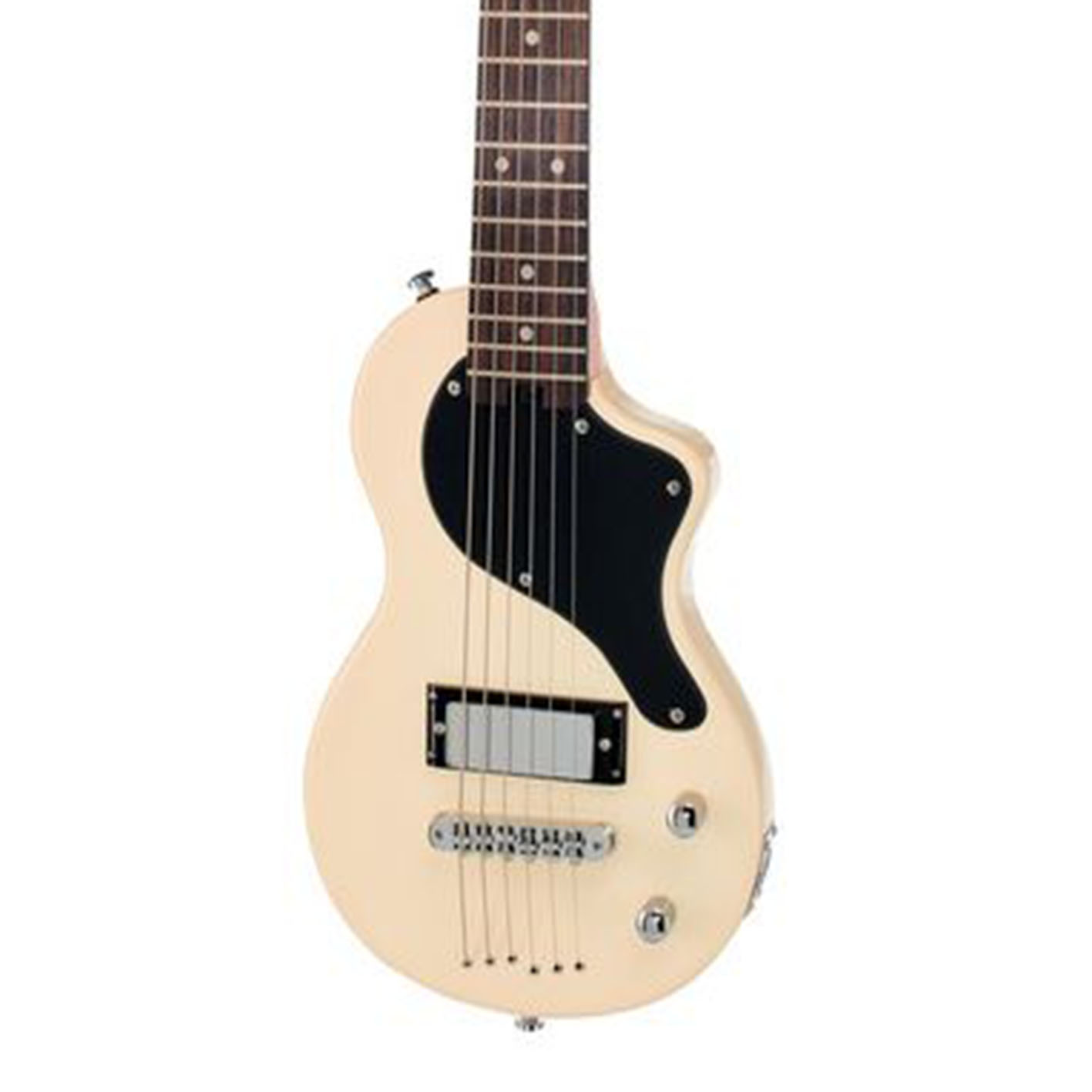
This is a short-scale travel electric guitar featuring a single mini-humbucker, two-piece poplar body, bolt-on neck and fairly sturdy tuners. It doesn’t pack down any smaller than it is, though it’s very compact already and if you really needed to, you could always take the neck off, if you were packing it up in a suitcase for example.
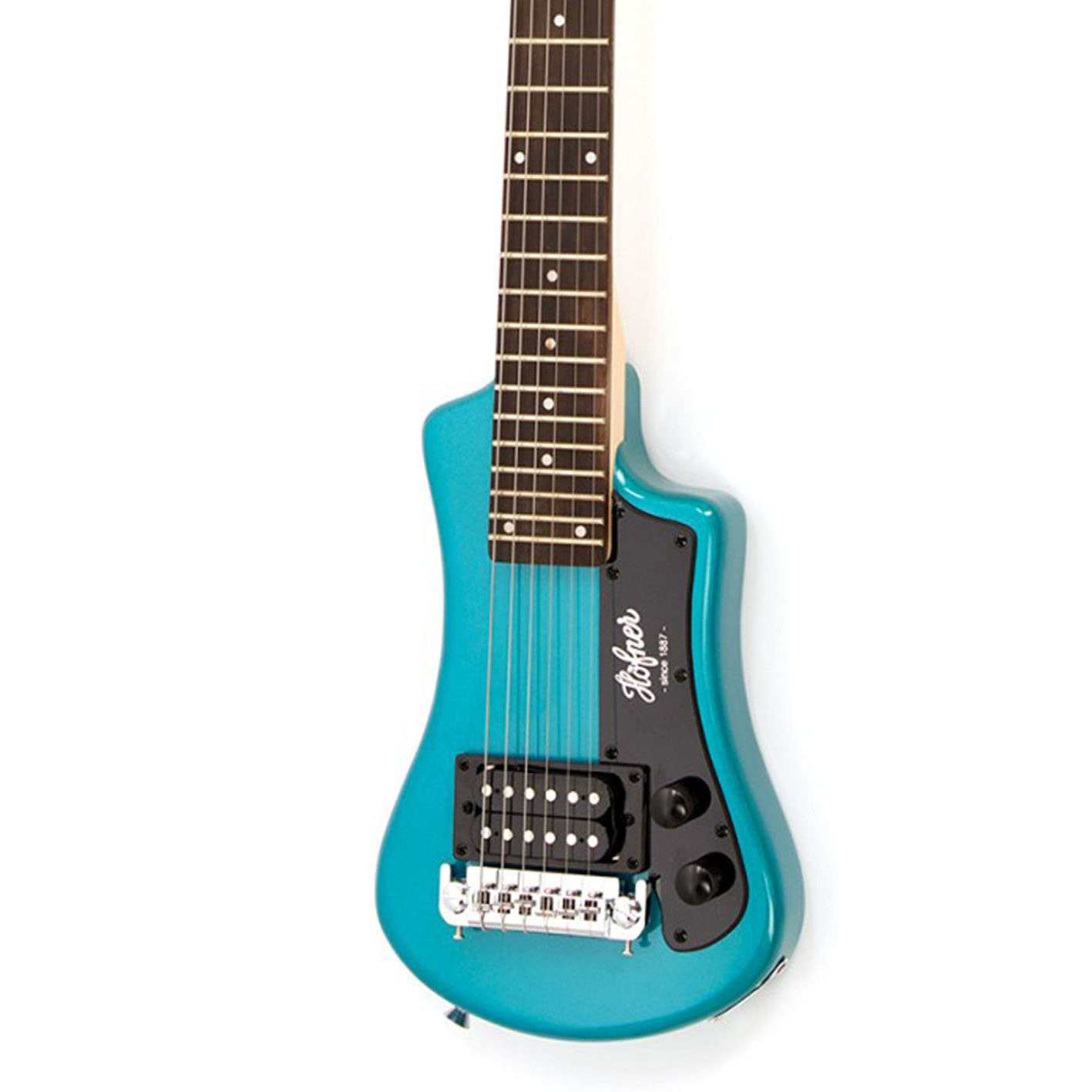
The Shorty provides full scale-length familiarity which, when combined with the tiny body, makes for a comfortable playing experience. The single humbucker at the bridge is meaty enough to blast out your favourite riffs, while you’ll feel instantly at home with the classic maple/rosewood combination neck and fingerboard.
Load the next 2 products... ↓
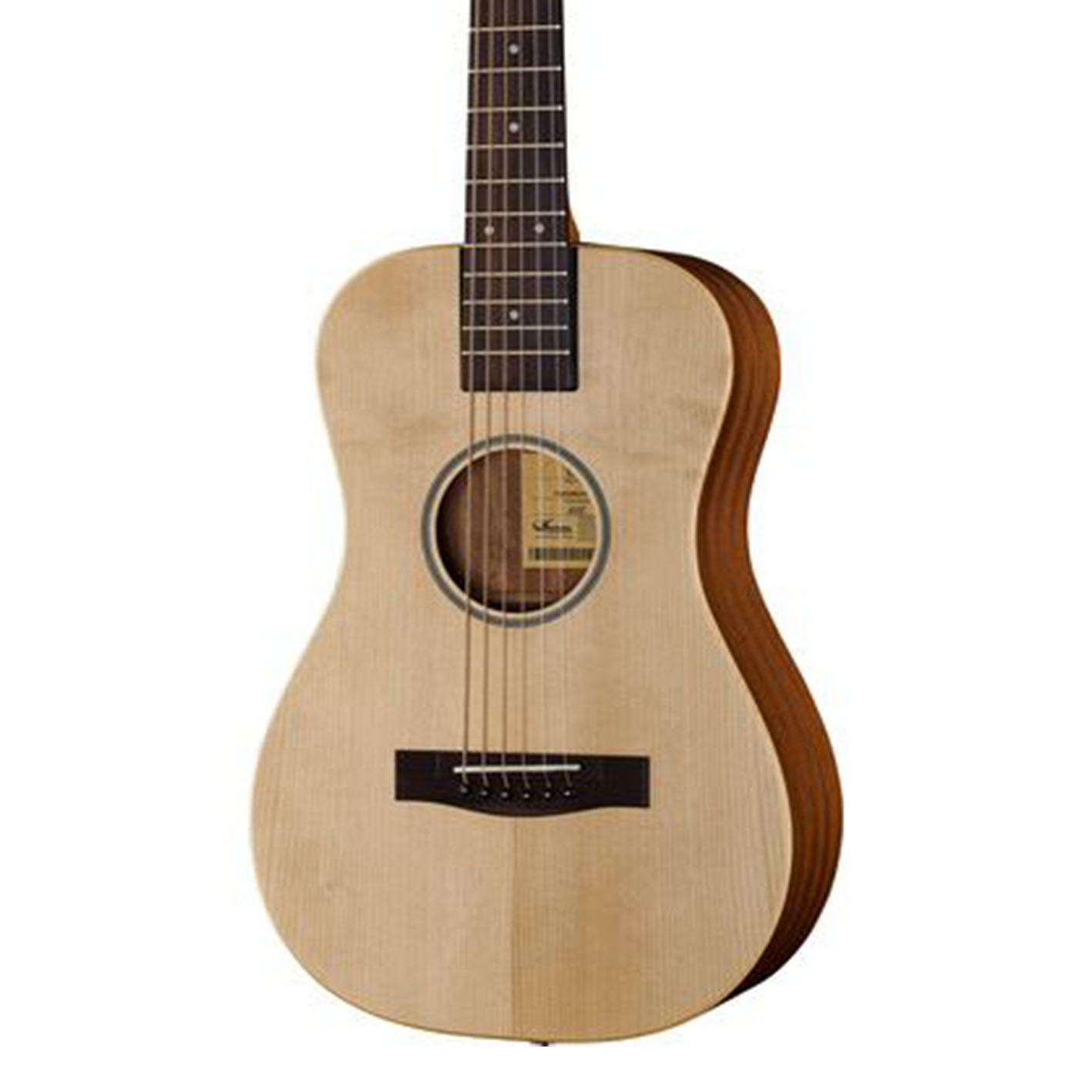
This handy, foldable acoustic is great for players who want something quality but affordable. It’s got a solid spruce top and layered mahogany back and sides. You can get a great tone from it, whether you’re playing with a pick or with fingers. It’s dynamic, and while it might not be as loud as a full size guitar, can still throw out a good amount of volume.
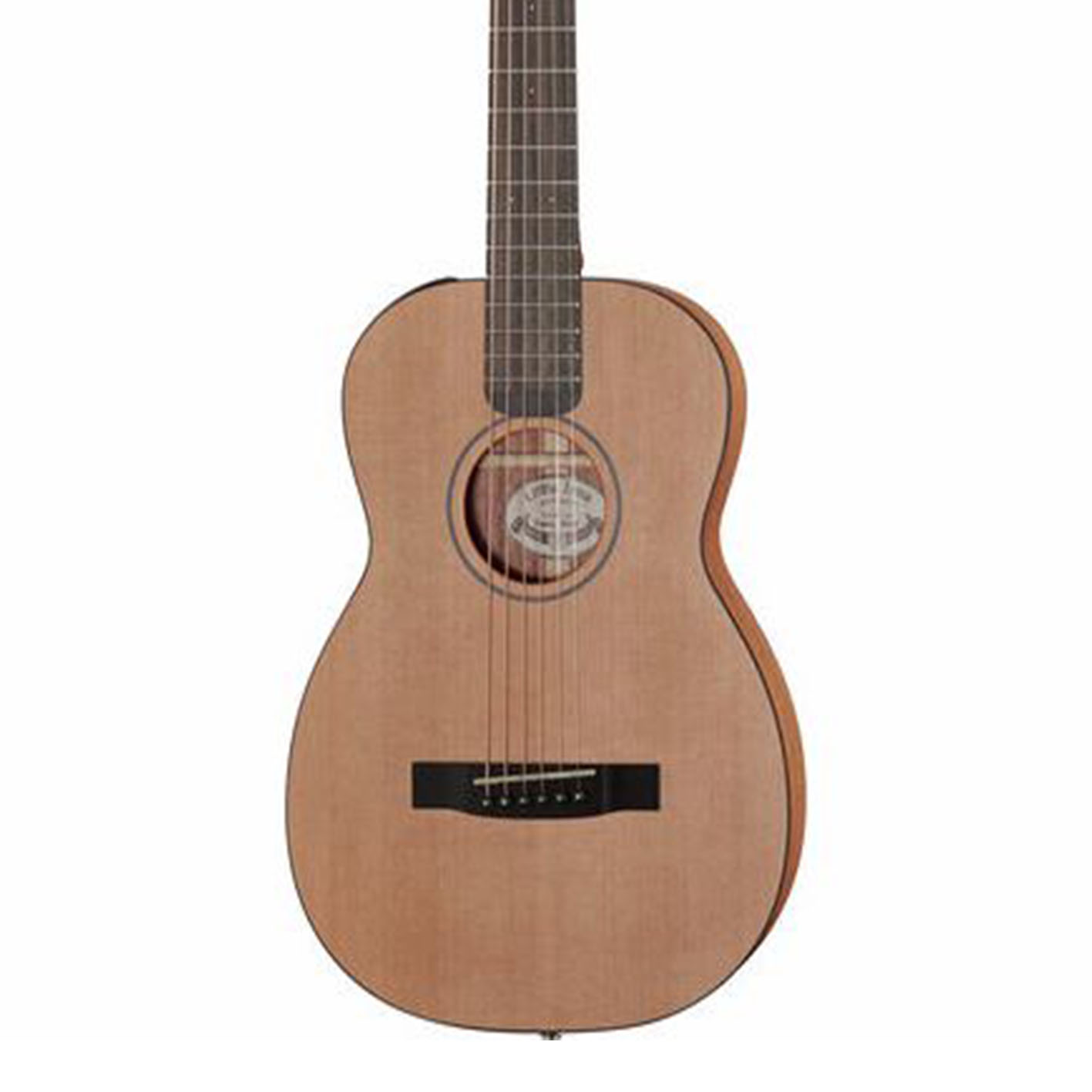
This is one for serious acoustic players. It bears a hefty price tag, but you can get some serious tones from this guitar. Boasting a solid red cedar top and solid African mahogany back and sides, the Furch Little Jane yields a beautiful, rich and balanced tone with a good amount of projection.
Best overall
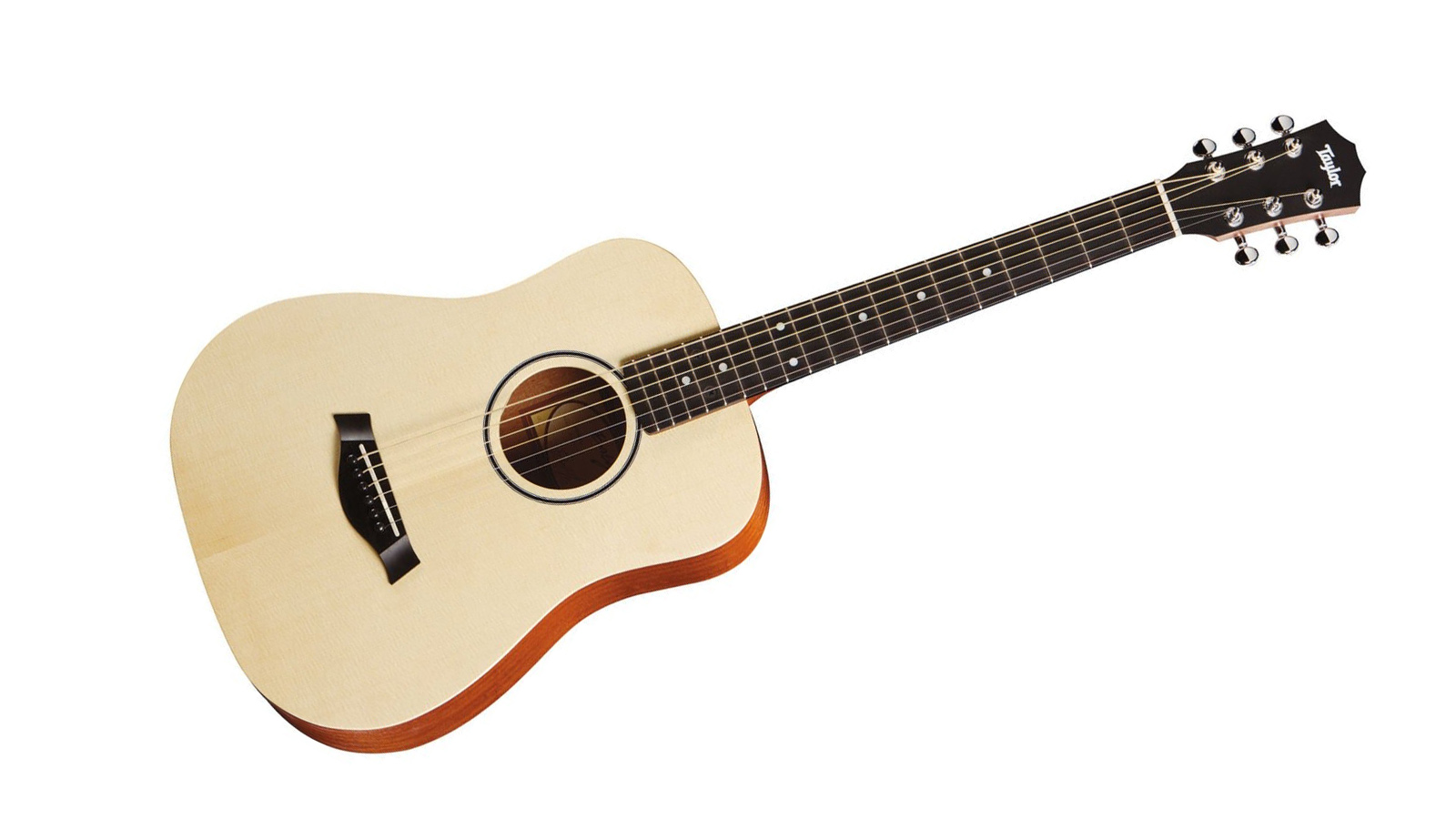
1. Taylor Baby Taylor
Our expert review:
Specifications
Reasons to buy
Reasons to avoid
If the more outlandish styles of travel guitar aren’t for you, maybe the Baby Taylor will be. This ¾-sized dreadnought comes with all the quality and projection you’d expect from one of the acoustic world’s biggest names, just in a size that can be hauled around anywhere without breaking your back. Or, indeed, your wallet.
The Baby Taylor would be the perfect option as a second (or third) guitar in anyone’s collection, designed to be stashed in the included gig bag and taken anywhere. Players with larger hands may feel a bit cramped navigating the 22.75” scale length, but for the majority of people the Baby Taylor is easy to recommend.
Best for volume
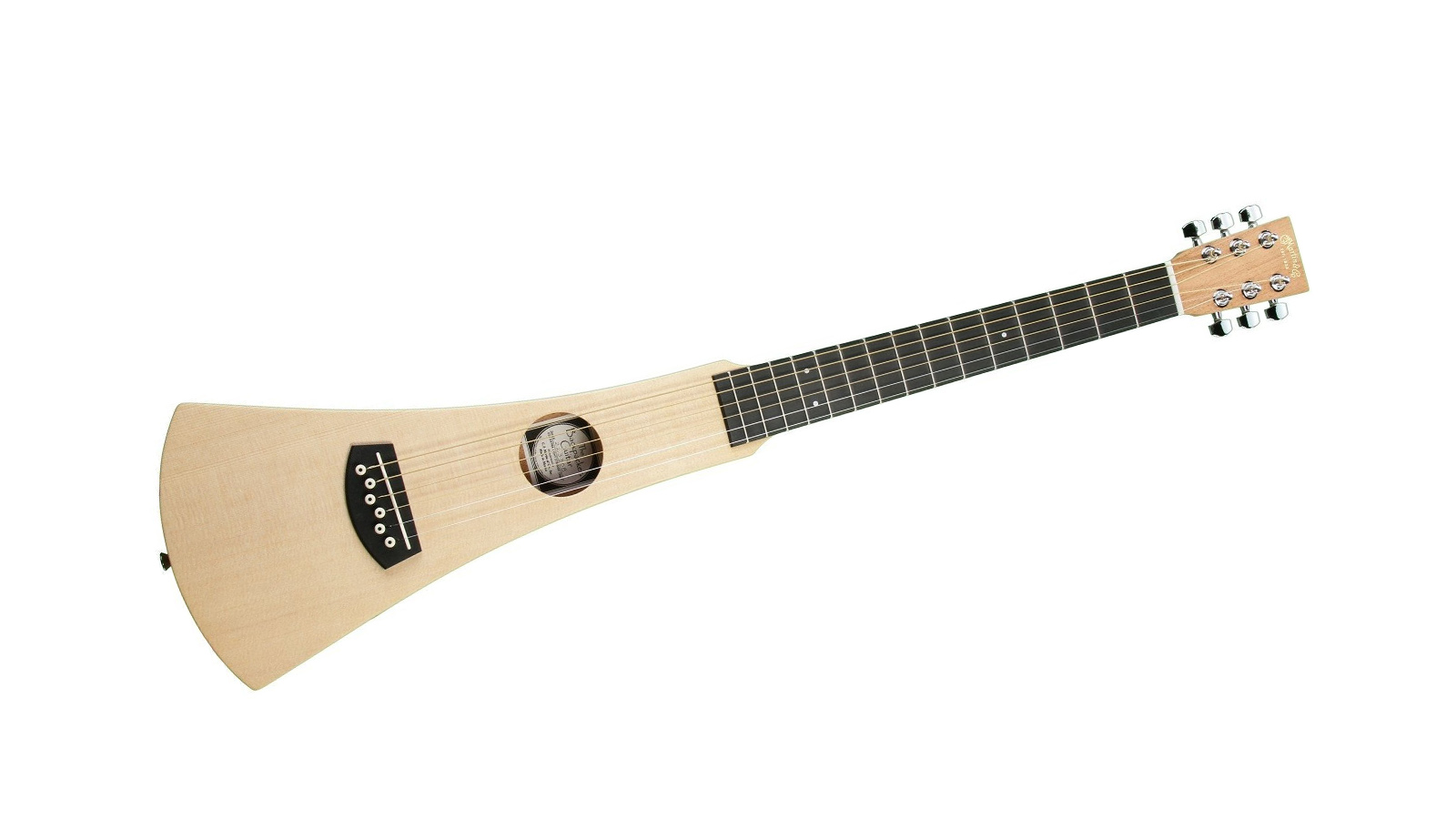
2. Martin Backpacker
Our expert review:
Specifications
Reasons to buy
Reasons to avoid
We weren’t lying when we said travel guitars can jar a bit visually. The Martin Backpacker has a unique body shape, that’s for sure, but coming from a name like Martin you can rest assured this guitar will perform brilliantly. What surprised us was the volume and projection this little guitar pumps out, thanks in part to the solid mahogany used in the body.
Originally launched in 1992, the Martin Backpacker has carved itself a nice niche in the world of travel guitars, and its exceptional build quality means it will last for many more years to come.
Best with a trem
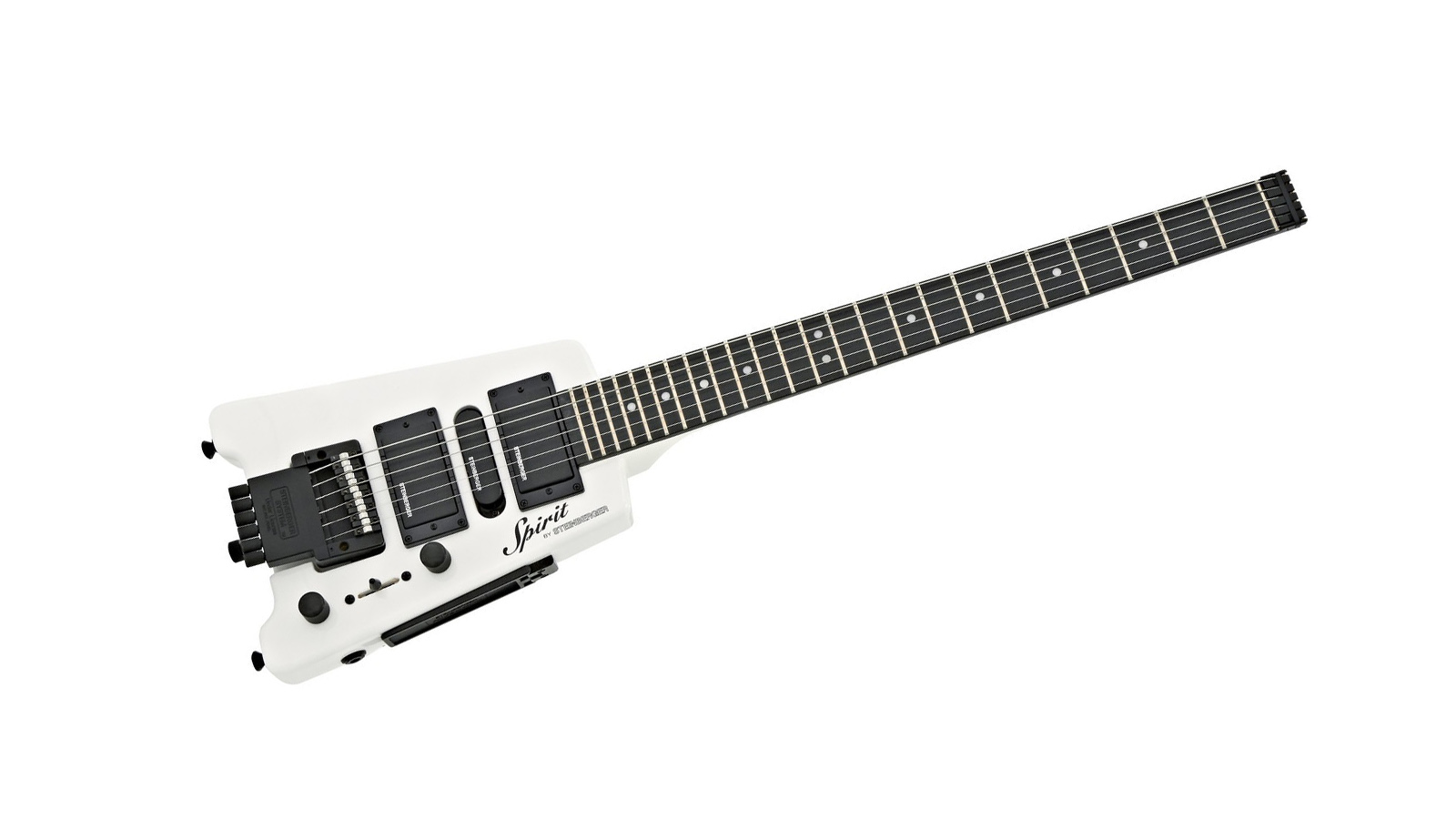
3. Steinberger Spirit GT-Pro Deluxe
Our expert review:
Specifications
Reasons to buy
Reasons to avoid
While not officially marketed as a travel guitar, the Steinberger Spirit GT-Pro Deluxe definitely fits the bill due to its distinctive size and shape. The classic Steinberger ‘headless’ design is correct and present, making the same bold visual statement of its more expensive stablemates, yet the decision to use wood over composite materials makes the whole thing more cost-effective and suited for travelling.
Despite the smaller body, the Spirit GT-Pro Deluxe features a scale length of 25.5”, making the actual playing area larger than that of a standard Les Paul. It’s also pretty rare to find neck-thru bodies at this price point, which all adds up to a decent value instrument regardless of how you end up using it.
Best for Strat players
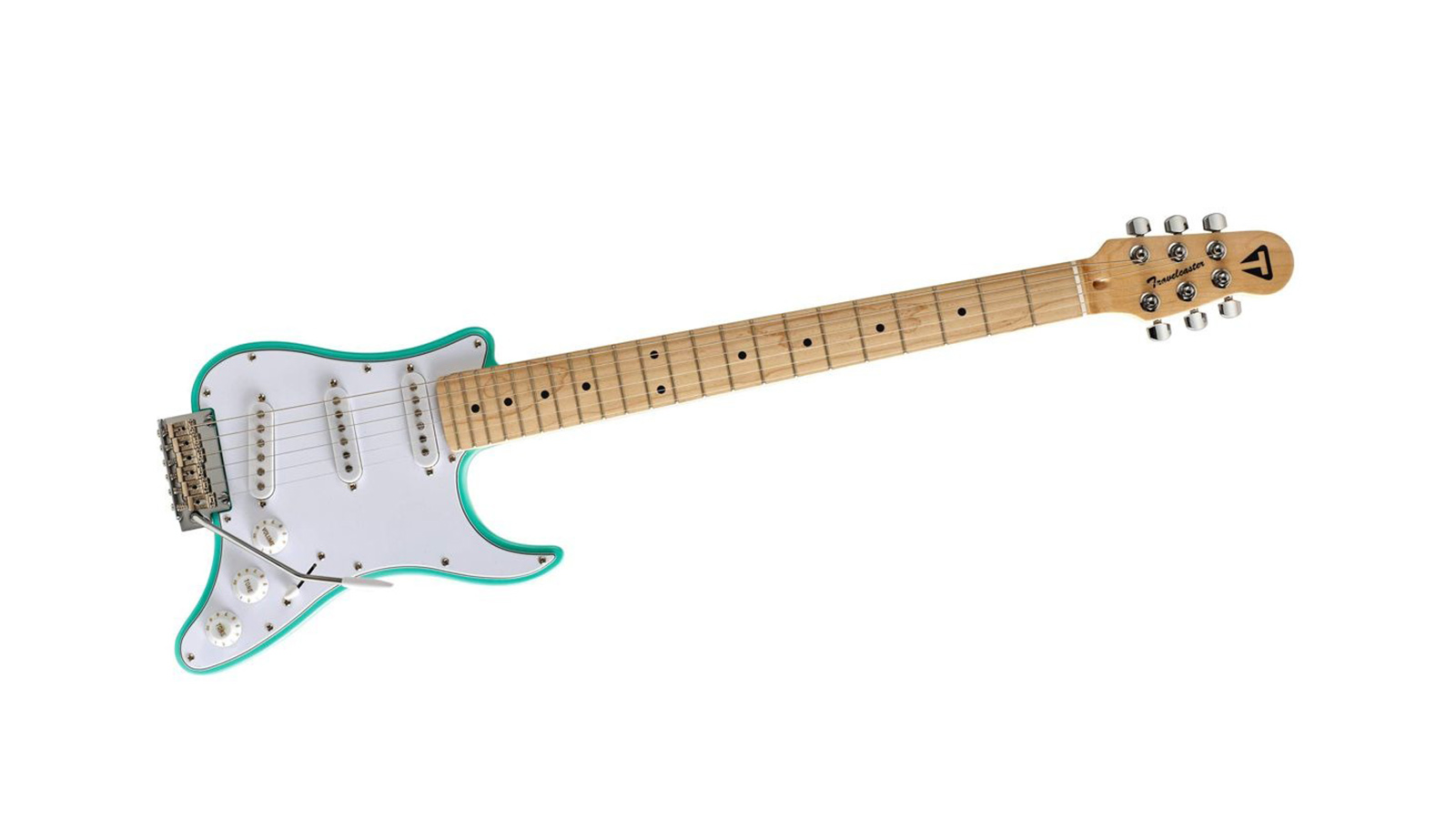
Specifications
Reasons to buy
Reasons to avoid
It’s called ‘cognitive dissonance’. That conflict you feel when something you know to be right is challenged. The Traveler Travelcaster Deluxe is a relative example; to look at it, you can instantly see those famous Stratocaster outlines of the pickguard, the three single coil pickups and the control knobs. Yet the eagle-eyed among you will have noticed anything on the body that isn’t underneath the pickguard has been shaved away, leaving a guitar which is 35% lighter and 14% shorter than a regular Strat.
Weighing in at only 5 lbs, the Travelcaster Deluxe may take some getting over visually, but in use it provides that same Strat experience, the same 25.5” scale length and the same tonal versatility of those pickups. If you can get over the cognitive dissonance, it may just be the perfect travel guitar for you.
Read the full Traveler Travelcaster Deluxe review
Best electric options
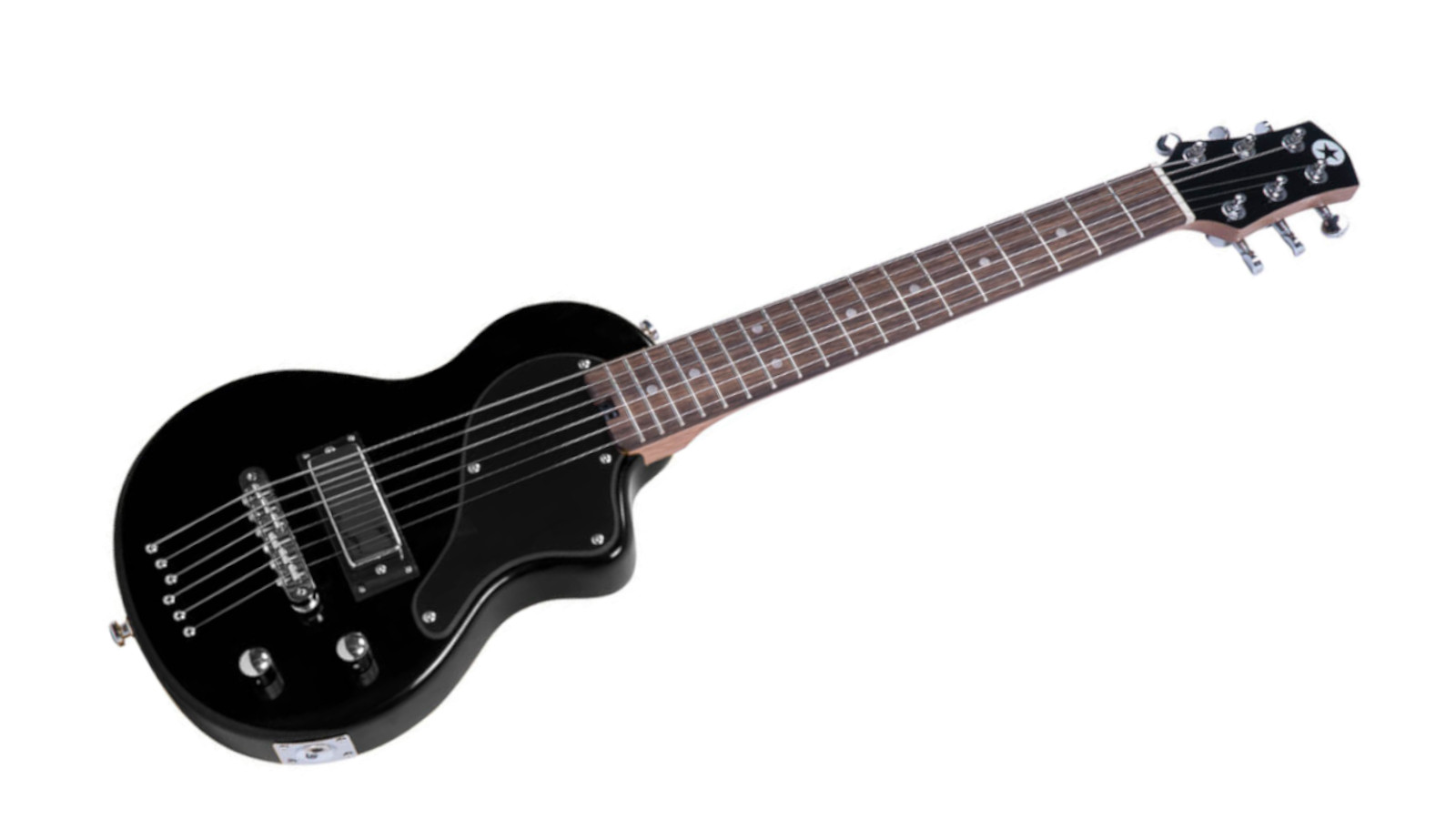
5. Blackstar Carry-On Travel Guitar ST
Our expert review:
Specifications
Reasons to buy
Reasons to avoid
This is a short-scale travel electric guitar featuring a single mini-humbucker, two-piece poplar body, bolt-on neck and fairly sturdy tuners. It doesn’t pack down any smaller than it is, though it’s very compact already and if you really needed to, you could always take the neck off, if you were packing it up in a suitcase for example.
It plays great and the shorter 20.7” scale length doesn’t take long to readjust to - younger beginners might find that they can fret chords and make stretches between frets more easily too. The mini-humbucker covers a lot of ground, so will suit any musical style you can throw at it. Whether you’re playing clean or super distorted, this little thing can really pack a punch!
There is a more expensive version that’s around double the price with some upgrades, but in terms of value for money, we feel that the Blackstar Carry-On ST is one of the best travel guitars around.
Best full-scale experience
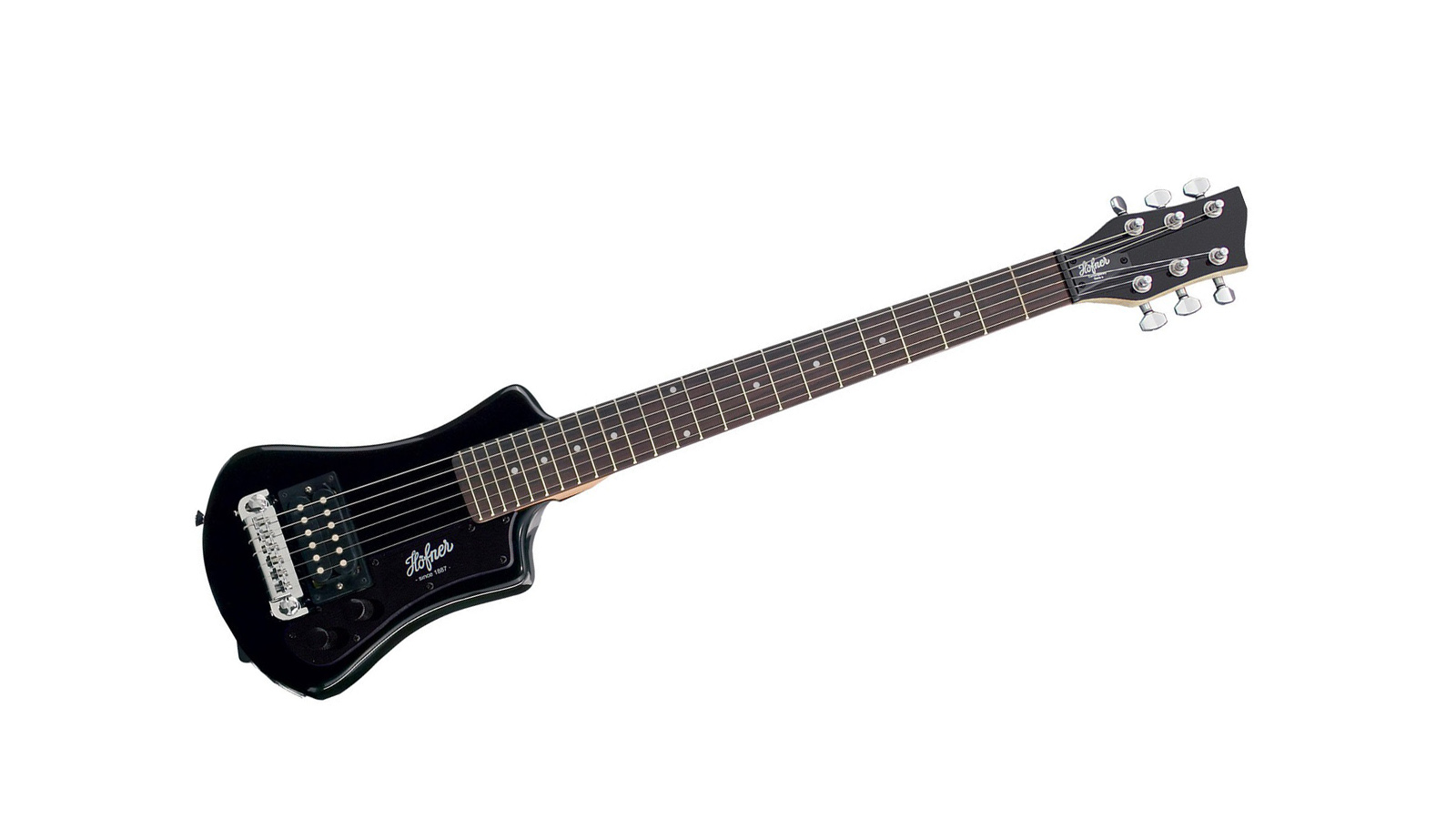
6. Hofner Shorty travel guitar
Our expert review:
Specifications
Reasons to buy
Reasons to avoid
The Hofner Shorty has been around since the 1980s, and has long been a favourite for players looking for a portable electric they can travel with. It provides full scale-length familiarity which, when combined with the tiny body, makes for a comfortable playing experience. The single humbucker at the bridge is meaty enough to blast out your favourite riffs, while you’ll feel instantly at home with the classic maple/rosewood combination neck and fingerboard.
Sure, it’s not going to win any awards for tone, and you’re unlikely to see them used on album-of-the-year contenders, but as an inexpensive way to add a bit of portability to your line-up the Hofner Shorty is well worth consideration.
Best foldable
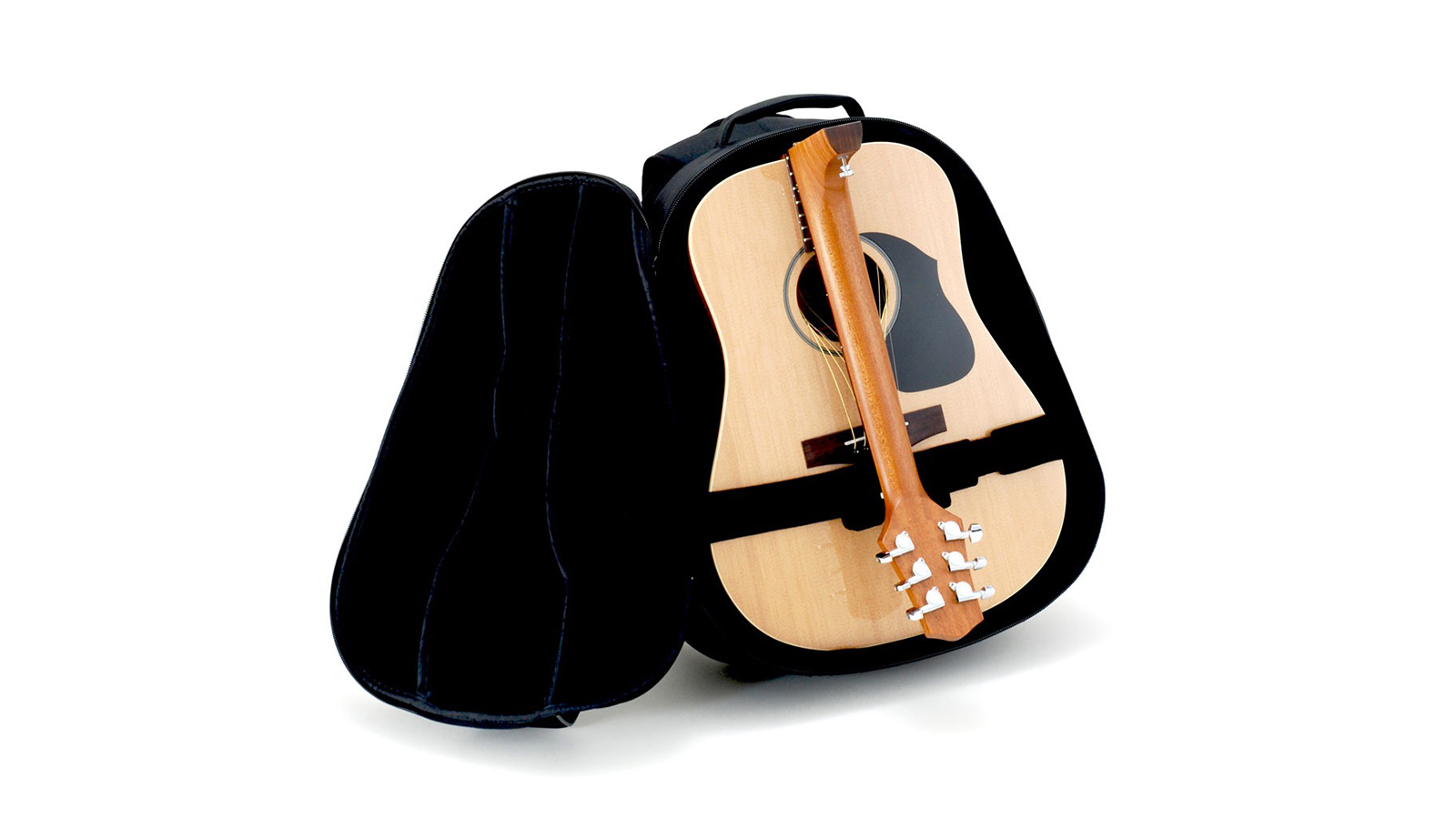
7. Journey Instruments PJ410N
Our expert review:
Specifications
Reasons to buy
Reasons to avoid
This handy, foldable acoustic makes for one of the best travel guitars for players who want something quality but affordable. It’s got a solid spruce top and layered mahogany back and sides. You can get a great tone from it, whether you’re playing with a pick or with fingers. It’s dynamic, and while it might not be as loud as a full size guitar, can still throw out a good amount of volume.
It fits perfectly inside the included padded rucksack, and can be assembled in 20 seconds. Simply put the neck into position, snap it in place and lock it from the back of the body. Then you’ve got a guitar with a 23” scale ready to play. It’s great for experienced players who want something that sounds good while they’re on their travels (the bag will fit under many airline seats), but also makes for a great beginner guitar for kids.
Best all-solid option
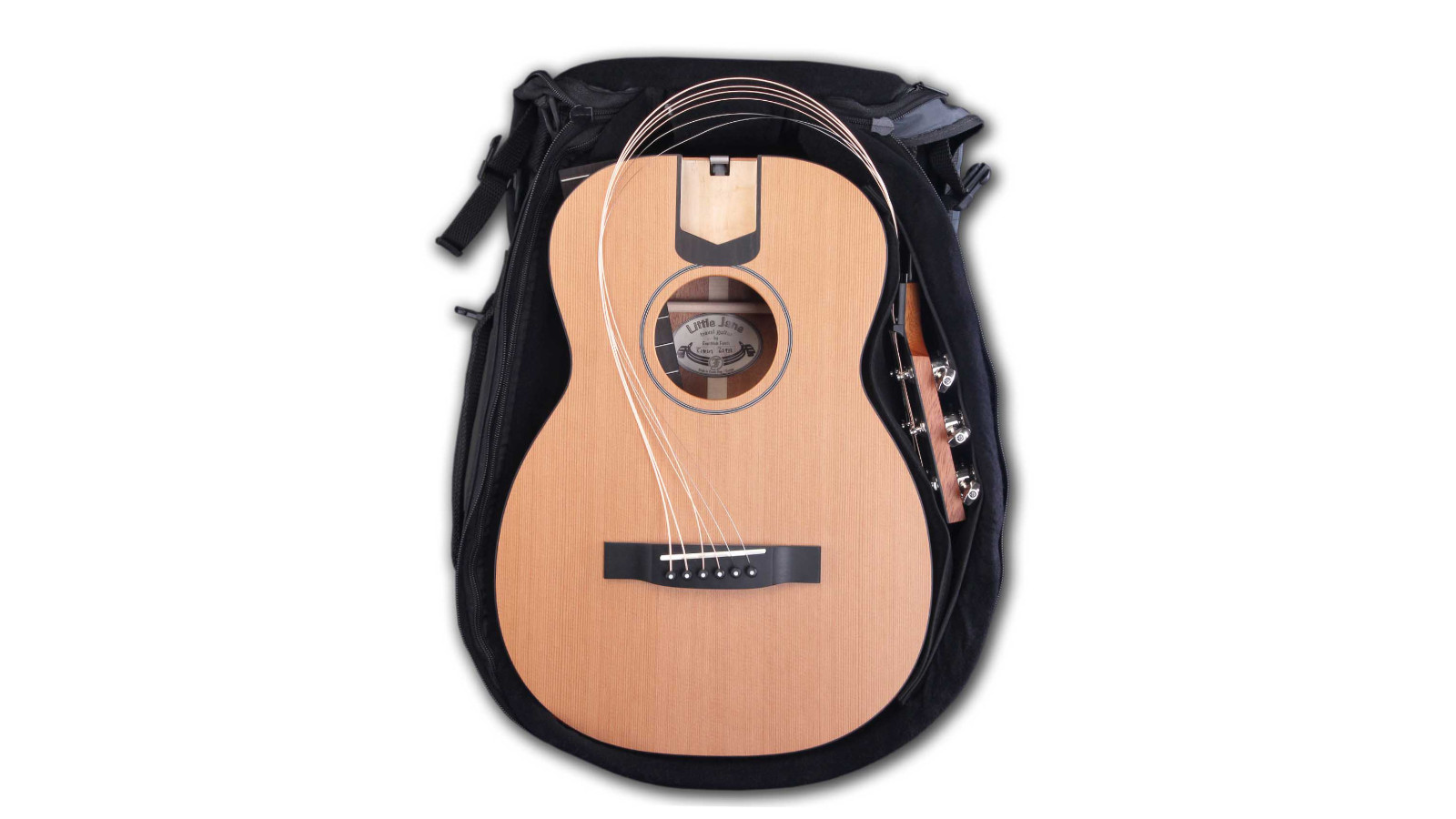
8. Furch Little Jane LJ-10
Our expert review:
Specifications
Reasons to buy
Reasons to avoid
This is definitely one of the best travel guitars for serious acoustic players. It bears a hefty price tag, but you can get some serious tones from this guitar. Boasting a solid red cedar top and solid African mahogany back and sides, the Furch Little Jane yields a beautiful, rich and balanced tone with a good amount of projection.
The guitar can be folded down and fit into a rucksack (included). The headstock, neck and body are separate from one another to save space but can be assembled into one piece very quickly and easily. Once the neck is locked into position using Furch’s proprietary assembly system, it’s ready to play and will even go back in tune.
The included rucksack is well padded and will ensure that it’s protected enough on your travels. Travel acoustic guitars seldom sound this good, and to be fair the price reflects that, but it really is one of the best out there.
Best travel guitars: Buying advice
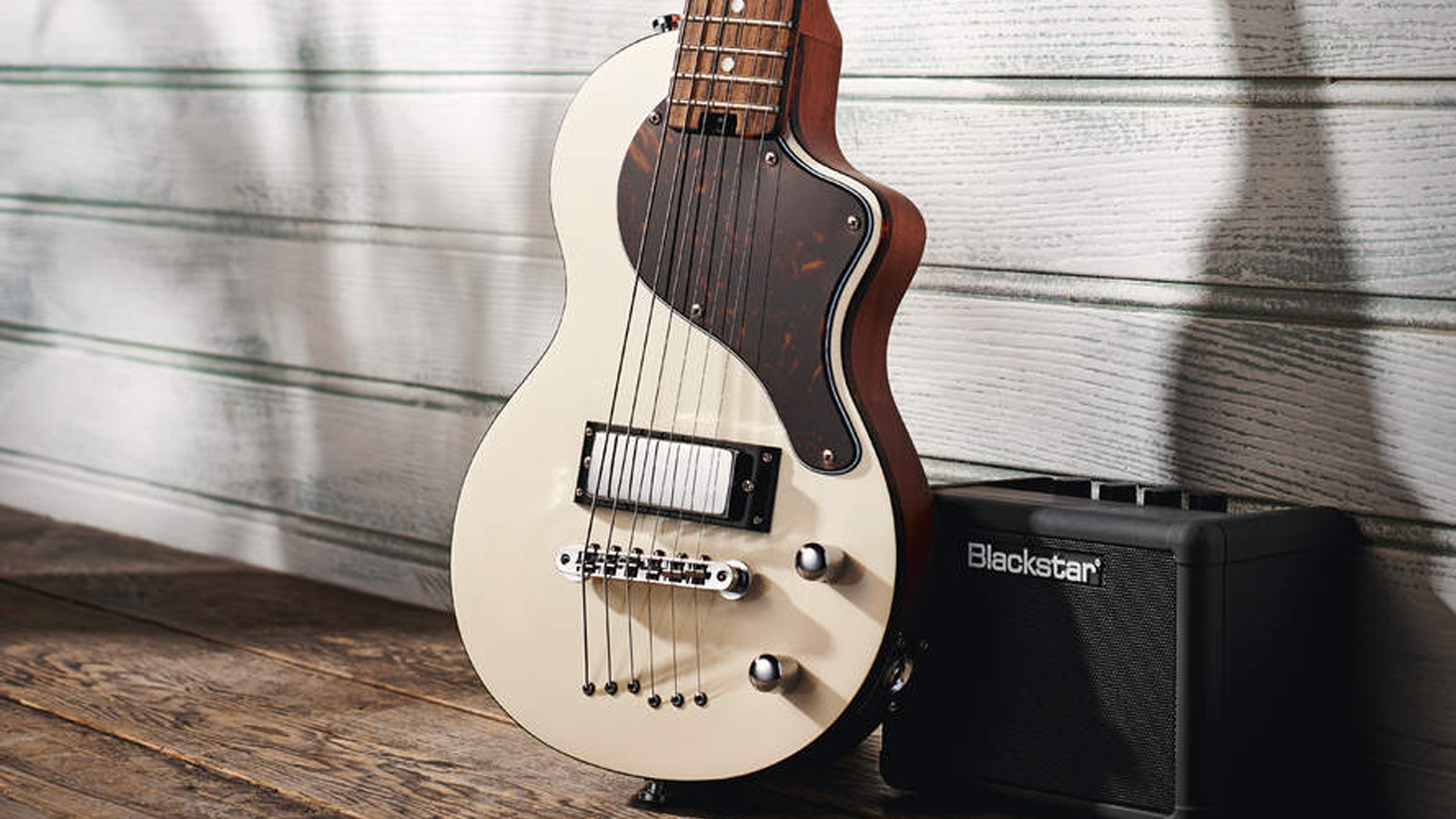
What is a travel guitar?
Essentially, a travel guitar is a guitar designed with portability and mobility as its key function. This will usually mean the guitar has a significantly smaller body or weight, and they often boast creative solutions to common issues like tuning or storage. From conception to construction, the travel guitar is designed to be thrown in a bag and transported anywhere, everywhere, and all those places in between.
Standard-sized guitars can be, as we know, too large, too heavy or too delicate to carry around for long stretches, so travel guitars offer a specialist tool for those specific situations. Realistically, you’ll not find too many studio musicians reaching for the travel guitar to nail that perfect tone, but then that’s not what they’re for. Portability, size and weight are order of the day here, and it helps that there are travel guitars on the market today which also nail that other crucial element; tone.
What makes travel guitars different?
At first glance, the sight of a dedicated travel guitar can jar a little. Often, they have quite striking aesthetic differences from regular guitars. Like looking at something you know, only quite different. Manufacturers employ all kinds of measures as they seek to reduce the overall size and weight of the guitar, and it’s not uncommon to see guitars without headstocks, or with radically different shaped bodies, or even no body at all. Yet a guitar still has to function, so there is still the need for tuning pegs, a bridge, and other essential components.
What are the key features of travel guitars?
There are two major schools of thought when it comes to travel guitars. One is to take a regular sized guitar and zap it with a shrink ray, keeping the same proportions relatively but in a smaller overall package. This approach ensures the instrument retains its familiarity, and also makes them attractive to younger learners.
The other approach is to redesign the instrument completely, perhaps taking the tuning pegs and installing them in the body. Of course, such radical design changes can create other problems, so you may see these compensated for with the inclusion of detachable arm and leg rests, for example. While these guitars may look unfamiliar, the playing experience should be largely the same as a regular guitar. Scale lengths, fret locations and pitch will be the same, even if the physical form of the guitar is quite different.
Are travel guitars playable?
MusicRadar's got your back
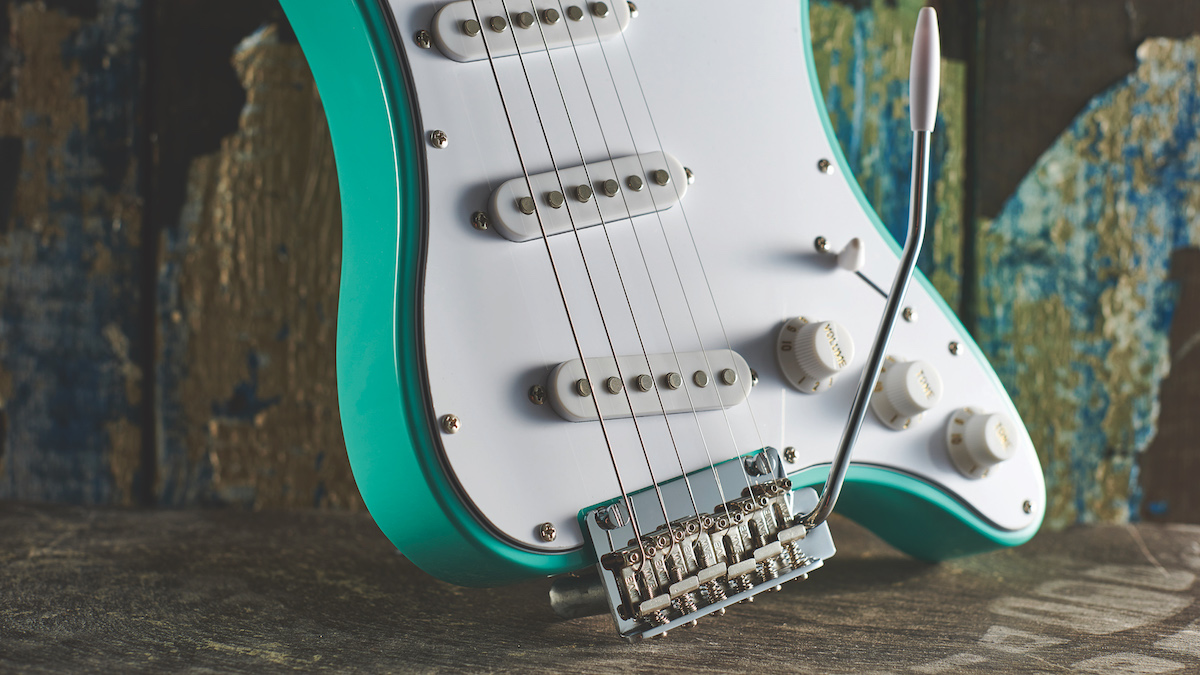
If you’ve never had the chance to play a travel guitar, you may be looking at the best travel guitars in this list and wondering if it’s playable in the same way as a regular guitar. The good news is that yes, absolutely they are playable. In the same way that jumping from the thin neck of an Ibanez RG-style electric to a 50’s style Stratocaster neck may take a bit of readjustment in your technique, so too will the leap from a regular to certain travel-sized guitars. It’s not difficult to adjust though. You may also have to sit differently to accommodate the smaller body, but as these guitars are inherently lighter in weight, this shouldn’t cause too much of a headache. Or, more accurately, backache.
Electric or acoustic?
All of the best travel guitars will either be electric or acoustic. Electrics do tend to be thinner, as the body doesn’t need to resonate as much to get a good sound, although it’s worth remembering that you’ll need an amp to get the most out of it. The body of a travel acoustic will normally be deeper, but as a result of this you can get a fairly loud sound without any amplification.
What do I get when I spend more?
The quality of the best travel guitars does vary, and as you might imagine, it does go up as you spend more money. As the price increases, you’ll likely find better hardware, which can not only help keep the guitar in tune and playing nicely, but can also improve how it sounds too, increasing resonance and sustain.
On electrics, you’ll find better quality pickups - these will be more dynamic and have a wider frequency range so you’ll get more detail and clarity. With travel acoustic guitars, you’ll get better quality, and even solid woods which will give you a better, more responsive and richer sound.
Who might use a travel guitar?
The breadth of today’s range of travel guitars means there is a guitar to suit most playing styles and genres, so the quick answer is that yes, there is a travel guitar for everyone. In terms of scenarios, travel guitars are, as their name suggests, designed to be taken places ordinary guitars cannot reach.
Small enough to fit on your back as you scale a mountain, or taken on a plane as part of your hand luggage, travel guitars give players the freedom and convenience of being able to play anywhere, at any time. For that, we applaud them. Let’s examine some of the best travel guitar options available today.
Can you buy travel guitars for children?
Travel guitars, as well as being the perfect accompaniment to a musician on the go, can also make for great instruments for children. If you’re looking for one of the best travel guitars to get a kid started on their guitar playing journey, then look for one that has a shorter scale length. This will mean that the notes are closer together and will be easier for small hands to fret.
Scale length and string gauge
Speaking of short scales, the gauge of strings you use is also worth considering. The strings on a guitar with a shorter scale will feel slinkier - they will be easier to bend and to some players may even feel too loose. One way to combat this is to use thicker strings, so something like 12s on an electric might make them feel a little more like 10s on a full size guitar. Though, if you’re just starting out then the thinner, slinkier strings might be better so they don’t quite hurt your fingertips as much.
How we chose the best travel guitars for this guide
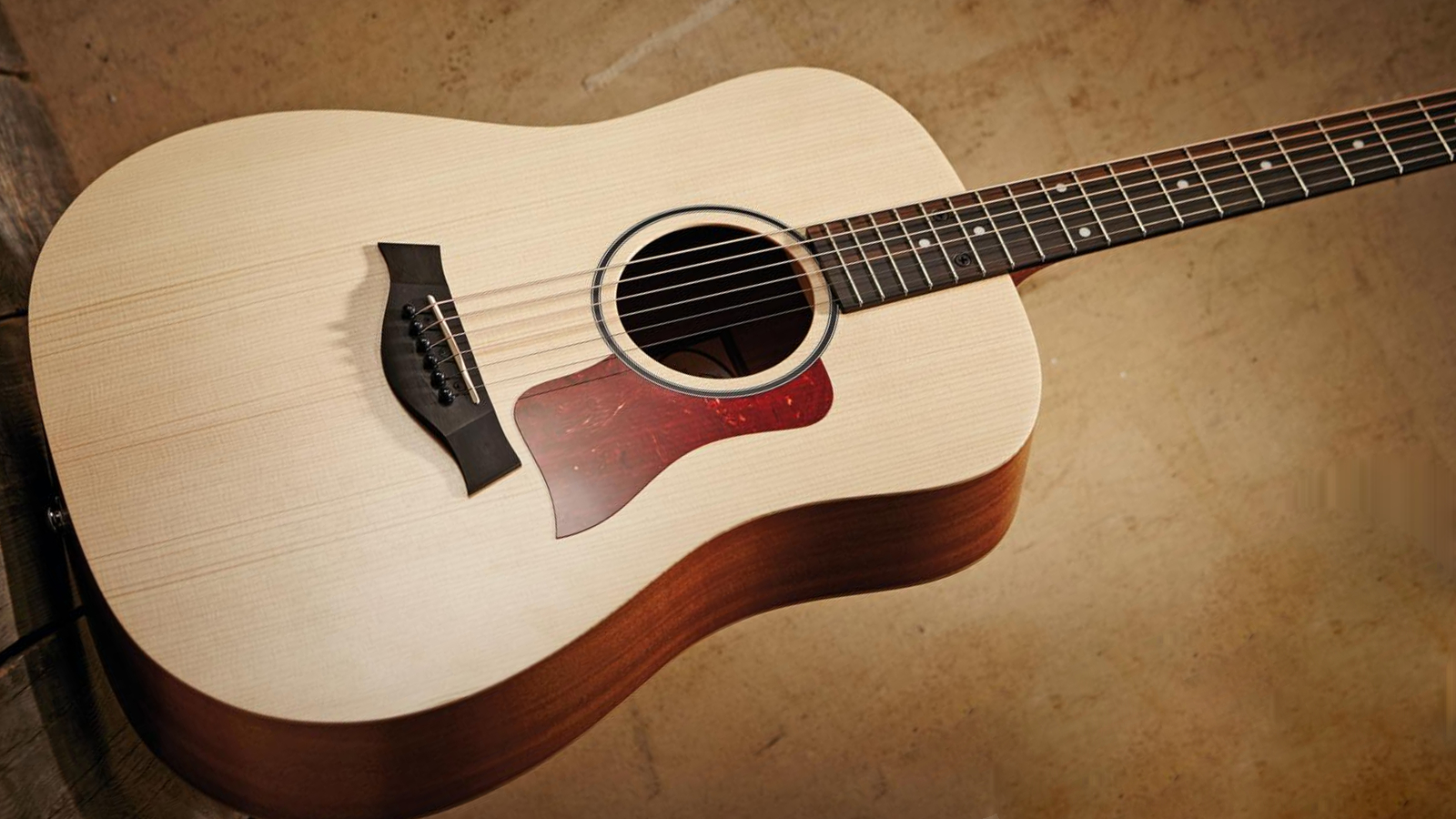
Here at MusicRadar, we are experts in our field, with many years of playing, creating and product testing between us. We live and breathe everything music gear-related, and we draw on this knowledge and experience of using products in live, recording, and rehearsal scenarios when selecting the products for our guides.
When choosing what we believe to be the best travel guitars available right now, we combine our hands-on experience, user reviews and testimonies and engage in lengthy discussions with our editorial colleagues to reach a consensus about the top products in any given category.
First and foremost, we are musicians, and we want other players to find the right product for them. So, we carefully consider everything from budget to feature set, ease of use, and durability to come up with a list of what we can safely say are the best travel guitars on the market right now.
Find out more about how we test music gear and services at MusicRadar.
Related buyer's guides
- The best acoustic guitar strings to get the most from your guitar
- ...and the best electric guitar strings
- Sharpen your chops with the best practice amps
- Keep your guitar safe on the road with the best guitar cases and gig bags
- Want something even smaller? These are the best ukuleles
- Need some inspiration? Check out these gifts for guitar players
Want all the hottest music and gear news, reviews, deals, features and more, direct to your inbox? Sign up here.
Chris Corfield is a journalist with over 12 years of experience writing for some of the music world's biggest brands including Orange Amplification, MusicRadar, Guitar World, Total Guitar and Dawsons Music. Chris loves getting nerdy about everything from guitar and bass gear, to synths, microphones, DJ gear and music production hardware.
